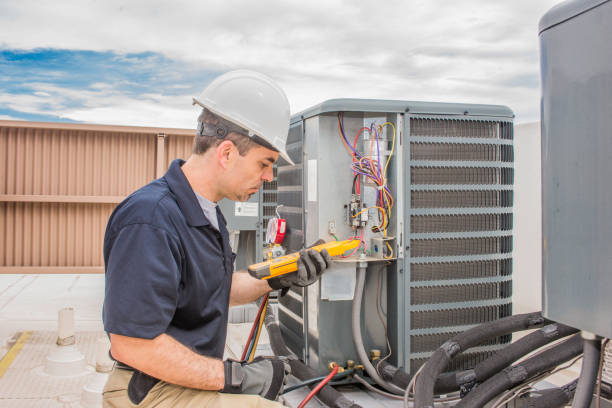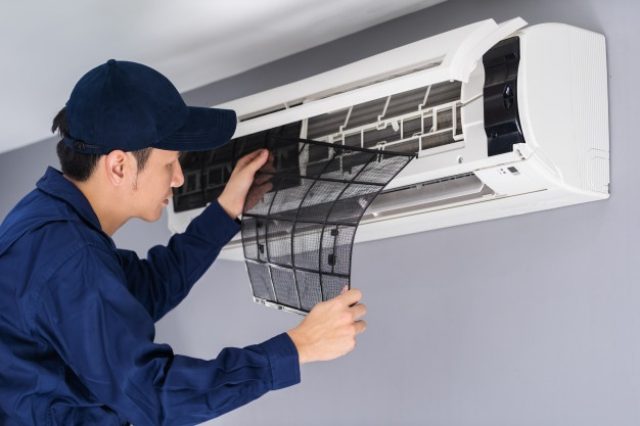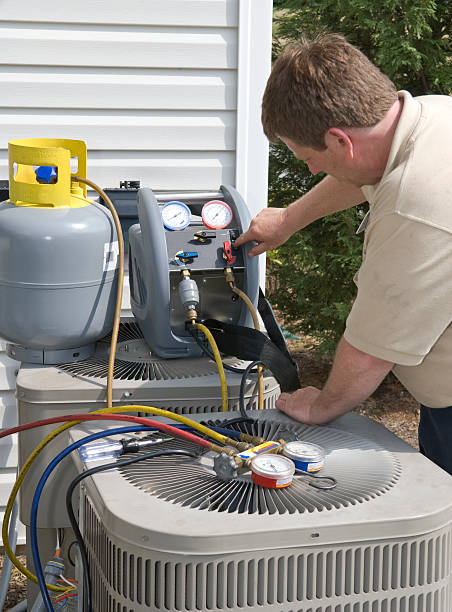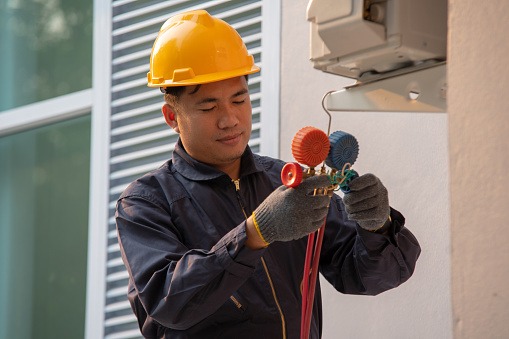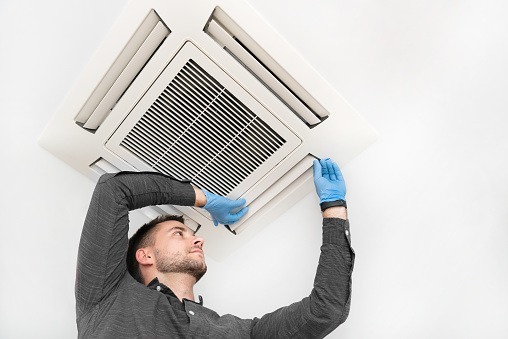Essential Tips for Basic Care of Your Air Conditioning System
Introduction
Air Conditioning Basic Care. Your air conditioning (AC) system plays a crucial role in keeping your home comfortable, especially during hot summer months. To ensure it operates efficiently and serves you for many years, it’s essential to provide it with basic care and maintenance. In this article, we’ll explore the fundamental steps you can take to keep your AC in top shape and save on energy costs.
Regular Cleaning
The first step in caring for your AC is to keep it clean. Dust, dirt, and debris can accumulate on the unit’s condenser coils and air filters. Clean or replace the filters as recommended by the manufacturer. For the condenser coils, use a soft brush or vacuum cleaner to remove any buildup. This simple task can help improve your system’s efficiency and prevent overworking, which can lead to higher energy consumption.
Check for Leaks
A common issue with AC systems is refrigerant leaks. If you notice a decrease in cooling efficiency or unusual noises, it may indicate a refrigerant leak. It’s crucial to address this issue promptly by contacting a professional technician. Refrigerant is harmful to the environment and your health, so never attempt to fix a leak yourself.
Clear the Area
Your outdoor AC unit needs proper ventilation to function efficiently. Ensure there’s at least two feet of clearance around the unit, removing any debris or obstructions. This allows for better airflow and reduces the strain on your system.
Lubricate Moving Parts
Lubricating the moving parts of your AC system, such as the fan motor and blower, can help reduce friction and wear. Check your user manual for guidance on which lubricants to use and how often to apply them. Well-lubricated parts can increase your system’s lifespan and save on energy costs.
Schedule Professional Maintenance
Regular professional maintenance is vital for the long-term health of your AC system. HVAC technicians can identify and address issues that may not be apparent to the untrained eye. It’s advisable to schedule annual or bi-annual maintenance to ensure your system is operating at peak performance.
Adjust the Thermostat
Properly using your thermostat can have a significant impact on your AC’s efficiency. Set your thermostat to a comfortable but not excessively low temperature. Turning up the temperature a few degrees can save energy and reduce your utility bills.
Seal Leaks and Insulate
To optimize your AC’s performance, check your home for leaks and ensure it’s adequately insulated. Leaky windows and doors can allow warm air to enter your home, forcing your AC to work harder. Proper insulation and sealing can make your home more energy-efficient and reduce the workload on your AC.
Maintenance Schedule
Regular maintenance is crucial for the efficient operation of your AC system. Create a maintenance schedule that includes the following tasks:
Filter Replacement: As mentioned earlier, replace or clean the air filters in your AC unit at regular intervals, typically every one to three months. A clogged filter can obstruct airflow and reduce your system’s efficiency.
Evaporator and Condenser Coil Cleaning: The coils in your AC system can collect dirt and grime over time, decreasing their efficiency. Schedule a professional technician to clean these coils during your annual maintenance visit.
Ductwork Inspection: If your home has a ducted AC system, inspect the ductwork for leaks, gaps, or damage. Leaky ducts can lead to significant energy loss, reducing your AC’s efficiency.
Check Electrical Connections: Loose or faulty electrical connections can be dangerous and may cause your AC system to malfunction. During maintenance, your technician will inspect and tighten electrical connections as necessary.
Refrigerant Levels: Your technician will also check the refrigerant levels during maintenance. Low refrigerant can lead to inefficient cooling and potential damage to your AC unit.
Energy Efficiency Tips
Apart from maintenance, consider these energy-saving tips to reduce your air conditioning costs:
Use Fans: Ceiling fans and box fans can help distribute cool air more effectively, allowing you to set your thermostat a few degrees higher while maintaining comfort.
Smart Thermostats: Invest in a programmable or smart thermostat that allows you to set temperature schedules, adjust settings remotely, and monitor energy usage.
Close Curtains and Blinds: During the hottest parts of the day, close curtains and blinds to block out direct sunlight and keep your home cooler.
Proper Ventilation: Use exhaust fans in kitchens and bathrooms to remove excess heat and humidity, reducing the workload on your AC.
Shade the Outdoor Unit: Providing shade for the outdoor unit can help it operate more efficiently. However, ensure it’s well-ventilated and not obstructed.
Conclusion
Taking good care of your air conditioning system and following these energy-efficient practices can help you enjoy a comfortable and cool living space while keeping energy costs in check. Remember that regular maintenance by a qualified technician is a key component of ensuring your AC system’s longevity and performance. By adopting these basic care tips and incorporating energy-saving practices, you can maintain a well-functioning AC system and minimize your environmental impact while saving on energy bills. Your home’s comfort and your wallet will thank you for it.

